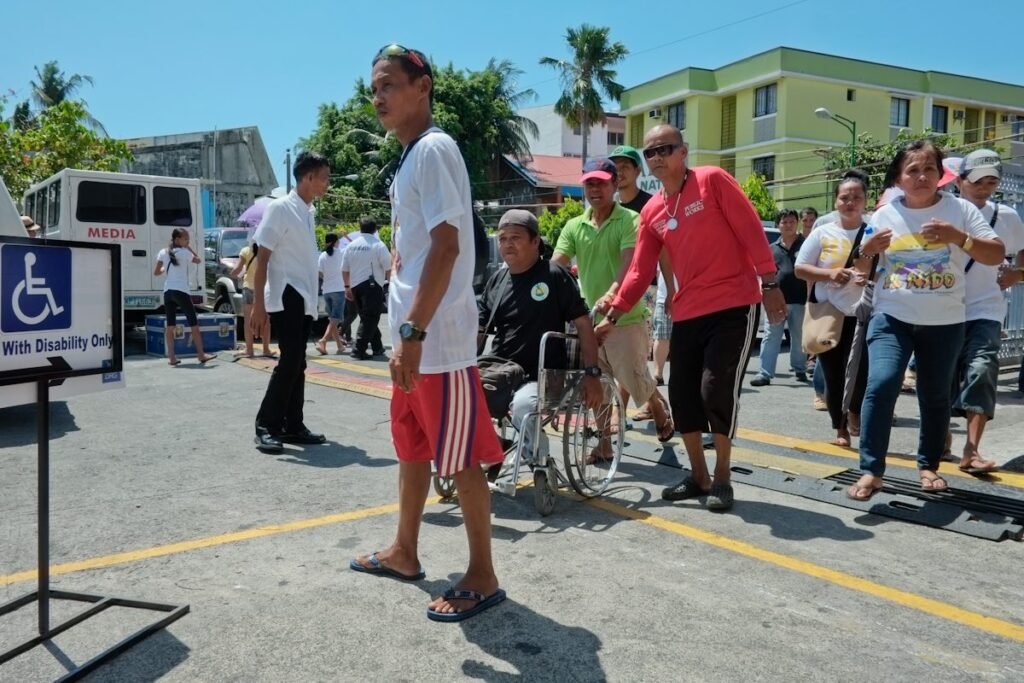This is an AI-generated summary and may contain errors. Be sure to read the full article for context.
The National Council on Disability Issues trains people with disabilities to find employment opportunities online.
Manila, Philippines – The National Council on Disability Affairs (NCDA) Establish free public Wi-Fi across the country to give people with disabilities more access to online jobs.
At the start of the 39th National Disability Prevention and Rehabilitation Week, NCDA Director Carmen Zubiaga said she is currently working to help people with disabilities obtain employment that allows them to work from home.
“Iyan ang isa sa mga tugon natin sa mga May kapansanan na nahihirapan magbiyahe… Iyong online job puwede nilang gawin sa kanilang tahanan,” Zubiaga said on Monday, July 17.
(This is one of our responses to people with disabilities who have difficulty commuting. Online jobs allow people with disabilities to work from home.)
NCDA provides training for people with disabilities to help them qualify for online jobs. These include positions such as virtual assistant, encoder, and transcriptionist.
“Persons with disabilities are not employed. Katulad noong sa Davao, meron tayong Davao Digital Association of PWDs kung saan sila ay naka-online job at kumikita ng maganda,” Zubiaga said.
(There are also many people with disabilities who are already employed. Similar to Davao, there is the Davao Digital Association for the Disabled, whose members work online and earn a good income.)
Zubiaga said the NCDA is coordinating with the Department of Information and Communications Technology (DICT) for this initiative.
Senate Bill 1277 or the Free Internet Access in Public Places Act is still awaiting final approval from Congress before being submitted to President Rodrigo Duterte for signature.
The National Broadband Plan (NBP) is also one of the government’s priorities.that It aims to address the country’s slow internet and could have more implications. People with disabilities who want to seize opportunities online.
Apart from online jobs, people with disabilities can also seek grants from the Department of Labor and Employment (DOLE) to help them set up their own businesses. (read: Japanese language teacher improves life skills of SPED graduates in Bohol)
The agency’s Bureau of Workers of Special Concern (BWSC) implements the DOLE Integrated Livelihood Emergency Program (DILEEP) for workers in vulnerable sectors.
Through DILEEP, around 14,000 people with disabilities across the country have already set up their own businesses, such as massage centers and massage centres. sari sari store. BWSC will donate up to P20,000 worth of raw materials and equipment to help vulnerable workers set up small businesses. (read: Discounts and VAT exemptions now available to disabled people)
Database for people with disabilities
Although there are several projects targeting this area, the Department of Social Welfare and Development (DSWD) said there is still a need to build a disability database.
“The DICT helps the NCDA and DSWD collect information on how many Filipinos have disabilities. Global estimates say that people with disabilities make up 15% of the population. , we still don’t have accurate numbers in the Philippines,” Social Welfare Undersecretary Marou Turalde Halabe said in Filipino.
And even if there are estimates of the number of people with disabilities in the country, governments still need to assess the data to be able to identify the appropriate approach for each type of disability.
Mr. Tularde Harabe said he would convene various institutions on July 31 to consolidate all efforts to address concerns in this area.
“The Philippine Development Plan specifies that government agencies must implement an integrated approach regarding the needs of vulnerable and marginalized sectors,” she said.
According to the latest available data from the Philippine Statistics Authority (PSA) based on the 2010 census, the number of people with disabilities is estimated at 1.4 million.
Zubiaga said the Department of Health (DOH) is currently working with local government units (LGUs) to ensure that their own lists of persons with disabilities are uploaded online. (read: LGU empowers people with autism through employment)
So far, there are 72,000 disabled people on the list available online. However, Zubiaga said this may be just one local government, as there are 50,000 people with disabilities identified in Quezon City alone. – Rappler.com

